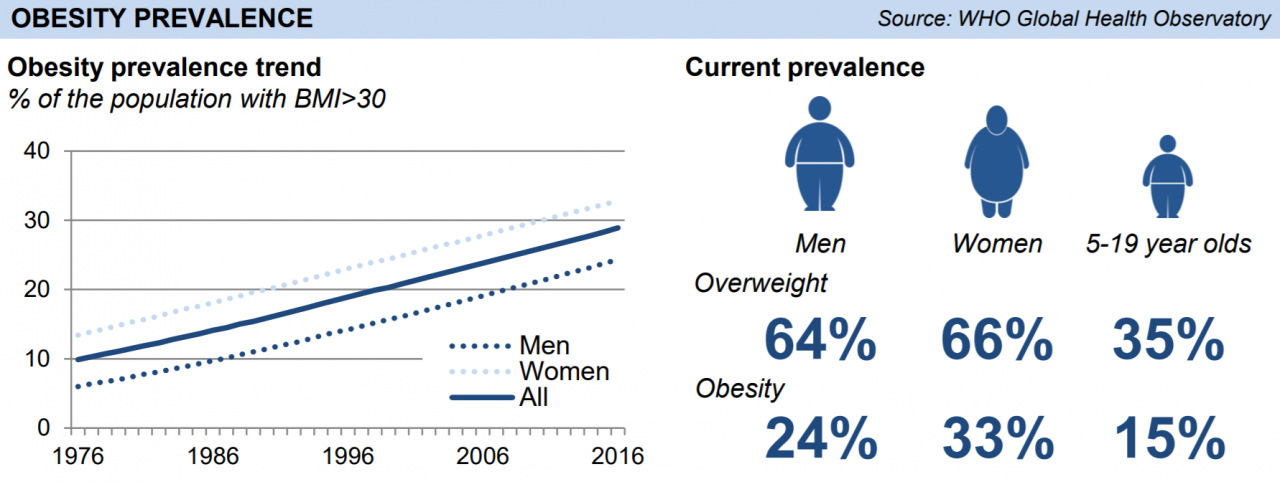ECOSOC at 80: Renewing Multilateralism in an Age of Global Uncertainty
On 23 January, the United Nations Economic and Social Council (ECOSOC) convened a commemorative session…
The Organisation for Economic Co-operation and Development (OECD) is a group of 34 member countries that discuss and develop economic and social policy. Recently, OECD released a global report, The Heavy Burden of Obesity – The Economics of Prevention, on the impact and burden of obesity on public health and economics of each OECD country.
The report identified that obesity-related diseases will claim more than 90 million lives in OECD countries in the next 30 years, with life expectancy reduced by nearly 3 years. The OECD report says that more than half the population is now overweight in 34 out of 36 OECD countries and almost one in four people is obese.
Mexico has one of the highest rates of obesity, with nearly one in three adults identified as obese. As a result, Mexicans live on average 4.2 years less due to overweight. This is the largest reduction in life expectancy of all countries analysed. Obese adults are at greater risk of chronic illnesses, such as diabetes, and reduced life expectancy.
Children are also paying a high price for obesity. Children who are overweight do less well at school, are more likely to miss school, and, when they grow up, are less likely to complete higher education. They also show lower life satisfaction and are up to three times more likely to be bullied, which in turn may contribute to lower school performance.

The impact on the Mexican economy is large with overweight accounting for 8.9% of health expenditure. In addition, overweight has lowered labour market outputs by the equivalent of 2.4 million full-time workers per year. Combined, this means that overweight and obesity reduces Mexico’s GDP by 5.3% – the largest impact of all OECD countries.
To tackle the obesity epidemic, Mexico has put in place a number of policies, including improved food labelling, and taxes on sugary drinks and high-calorie non-essential foods. By implementing these policies and food reformulation, Mexico can improve its prevention of noncommunicable diseases, reduce health expenditure and increase the productivity of the workforce.
Emerging is proud to work, on behalf of the Prairie Oat Growers of Canada (POGA), on promoting healthy diets in Mexico. Through the project Avena Canadiense, Emerging and POGA promote the consumption of oats in Mexico. Oats have many nutritional benefits, in particular for weight management, diabetes and cardiovascular prevention. Oats are highly nutritious and can provide benefits for all members of the population.